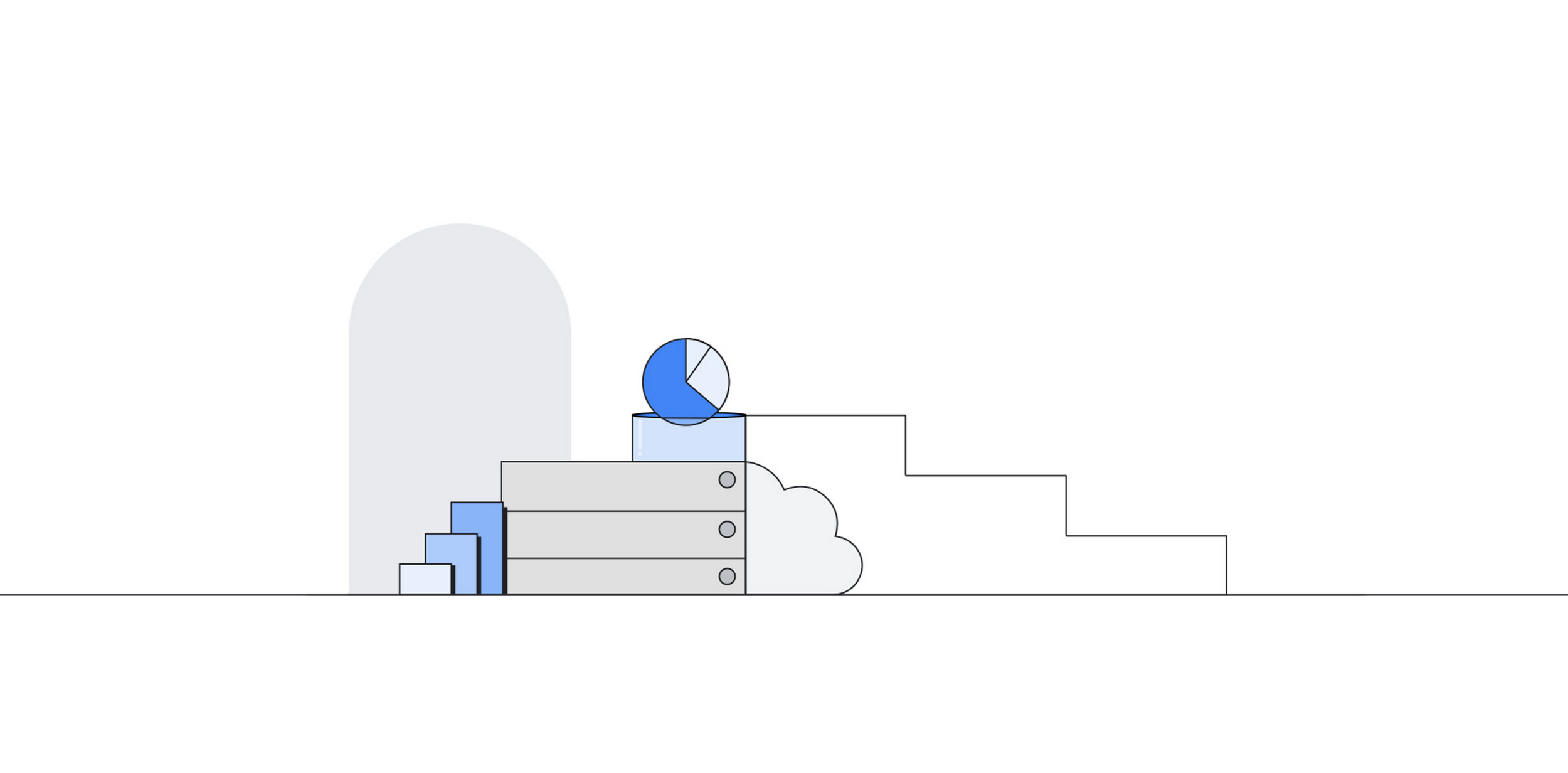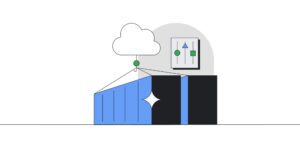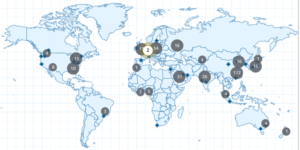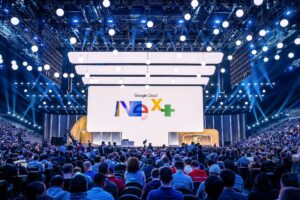
[ad_1]
At Google Cloud, we assist our prospects unify their information and join it with groundbreaking AI to construct transformative experiences. Information, whether or not it’s structured information in an operational database or unstructured information in an information lake, helps make AI more practical. For companies to really make the most of generative AI, they should entry, handle, and activate structured and unstructured information throughout their operational and analytical methods.
At Subsequent ‘23, we laid out a imaginative and prescient to assist builders construct enterprise gen AI functions together with delivering world-class vector capabilities, constructing sturdy integration with the developer ecosystem, and making it straightforward to connect with AI inferencing companies. We’ve been arduous at work delivering on that promise and right this moment, we’re asserting the overall availability (GA) of AlloyDB AI, an built-in set of capabilities in AlloyDB to simply construct enterprise gen AI apps.
We’re additionally asserting vector search capabilities throughout extra of our databases together with Spanner, MySQL, and Redis to assist builders construct gen AI apps with their favourite databases, and we’re including integrations with LangChain, a well-liked framework for growing functions powered by language fashions.
All these capabilities be a part of our present integrations with Vertex AI to offer an built-in platform for builders. Spanner and AlloyDB combine natively with Vertex AI for mannequin serving and inferencing with the familiarity of SQL, whereas Firestore and Bigtable combine with Vertex AI Vector Search to ship semantic search capabilities for gen AI apps.
We imagine the actual worth of generative AI is unlocked when operational information is built-in with gen AI to ship real-time, correct, and contextually-relevant experiences throughout enterprise functions. Operational databases with vector help assist bridge the hole between basis fashions and enterprise gen AI apps. And since operational databases sometimes retailer a majority of software information, they play a crucial function in how builders construct new, AI-assisted consumer experiences. That’s why 71% of organizations plan to make use of databases with built-in gen AI capabilities. Profitable databases will evolve to be AI-first, and deeply combine applied sciences corresponding to vector search, with seamless connectivity to AI fashions, and tight integrations with AI tooling and frameworks. All these can be natively constructed into or round operational databases as desk stakes.
AlloyDB: A Fashionable PostgreSQL database for generative AI workloads
AlloyDB is Google Cloud’s absolutely managed PostgreSQL-compatible database designed for superior efficiency, scale, and availability. Immediately, we’re asserting that AlloyDB AI is usually out there in each AlloyDB and AlloyDB Omni. Constructed for the long run, AlloyDB:
- is optimized for enterprise gen AI apps that want real-time and correct responses
- delivers superior efficiency for transactional, analytical, and vector workloads
- runs anyplace, together with on-premises and on different clouds, enabling prospects to modernize and innovate wherever they’re.
Clients corresponding to Character AI, FLUIDEFI, B4A and Regnology, are utilizing AlloyDB to energy their functions. For instance, Regnology’s regulatory reporting chatbot leverages pure language processing to grasp advanced regulatory terminology and queries.
“AlloyDB acts as a dynamic vector retailer, indexing repositories of regulatory tips, compliance paperwork, and historic reporting information to floor the chatbot. Compliance analysts and reporting specialists work together with the chatbot in a conversational method, saving time and addressing numerous regulatory reporting questions.” – Antoine Moreau, CIO, Regnology
Vector search throughout all Google Cloud databases
Vector search has emerged as a crucial functionality for constructing helpful and correct gen AI-powered functions, making it simpler to search out comparable search outcomes of unstructured information corresponding to textual content and pictures from a product catalog utilizing a nearest neighbor algorithm. Immediately, we’re asserting vector search throughout a number of Google Cloud databases, together with Cloud SQL for MySQL, Memorystore for Redis, and Spanner, all in preview.
Cloud SQL for MySQL now helps each approximate and precise nearest neighbor vector searches, including to the pgvector capabilities we launched final yr in Cloud SQL for PostgreSQL and AlloyDB. Builders can now retailer tens of millions of vectors in the identical MySQL situations they’re already utilizing. By using Cloud SQL for vector searches — whether or not on MySQL or PostgreSQL — you’ll be able to retailer and carry out vector searches straight in the identical operational database you’re already utilizing with out having to be taught or arrange a brand new system.
As well as, to offer ultra-fast efficiency in your gen AI functions, we’re launching built-in help for vector storage and seek for Memorystore for Redis. Every Redis occasion can be able to storing tens of tens of millions of vectors and might carry out vector search at single digit millisecond latency. This offers an ultra-low-latency information retailer for a wide range of use circumstances corresponding to LLM semantic caching and advice methods.
Spanner can scale vector searches for extremely partitionable workloads. Massive-scale vector workloads that contain billions of vectors and tens of millions of queries per second could be difficult for a lot of methods. These workloads are a fantastic match for Spanner’s precise nearest neighbor search as a result of Spanner can effectively scale back the search area to offer correct, real-time outcomes with low latency.
Accelerating ecosystem help for LangChain
LangChain has grown to be one of the crucial fashionable open-source LLM orchestration frameworks. In our efforts to offer software builders with instruments to assist them rapidly construct gen AI apps, we’re open-sourcing LangChain integrations for all of our Google Cloud databases. We are going to help three LangChain Integrations that embody Vector shops, Doc loaders, and Chat Messages Reminiscence.
By leveraging the ability of LangChain with our databases, builders can now simply create context-aware gen AI functions, sooner. The LangChain integration offers them built-in Retrieval Augmented Era (RAG) workflows throughout their most well-liked information supply, utilizing their selection of enterprise-grade Google Cloud database. Instance use circumstances embody personalised product suggestions, query answering, doc search and synthesis, and customer support automation.
Integration with particular LangChain parts simplifies the method of incorporating Google databases into functions. Supported parts embody:
- Vector shops, to help vector similarity queries. The LangChain Vector shops integration is obtainable for AlloyDB, Cloud SQL for PostgreSQL, Cloud SQL for MySQL, Memorystore for Redis, and Spanner.
- Doc loaders, which permit for seamless information loading from numerous exterior sources corresponding to net web page content material, or a transcript of a YouTube video.
- Chat Messages Reminiscence, permitting storage of chat historical past for future reference by offering deeper context from previous conversations.
Each the Doc loaders and Reminiscence integrations can be found for all Google Cloud databases together with AlloyDB, Firestore, Bigtable, Memorystore for Redis, Spanner, and Cloud SQL for MySQL, PostgreSQL, and SQL Server.
These packages at the moment are out there on GitHub.
Embrace an AI-driven future
There’s a wealth of knowledge in operational databases simply ready to energy the following transformative gen AI fashions and functions. By enhancing AlloyDB AI for enterprise grade manufacturing workloads, including intensive vector search capabilities throughout our database portfolio, and embracing generative AI frameworks from the group, builders have the instruments they should begin including clever, correct, and useful gen AI capabilities to their functions which can be grounded on the wealth of knowledge of their enterprise databases.
To be taught extra about how you can get began, be a part of our reside Information Cloud Innovation Dwell webinar on March 7, 2024, 9 – 10 AM PST, the place you’ll hear from product engineering leaders about these newest improvements.
[ad_2]
Source link





